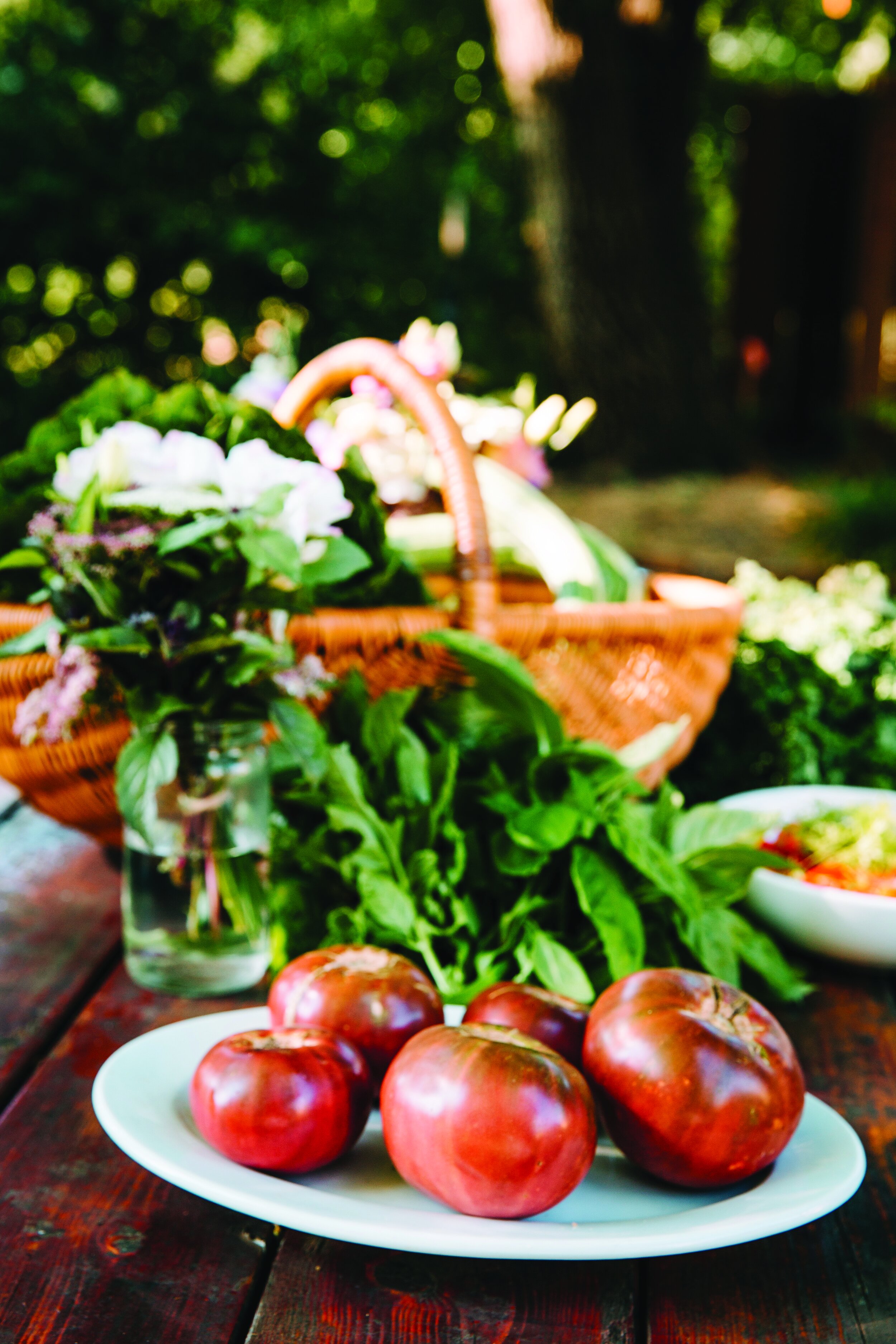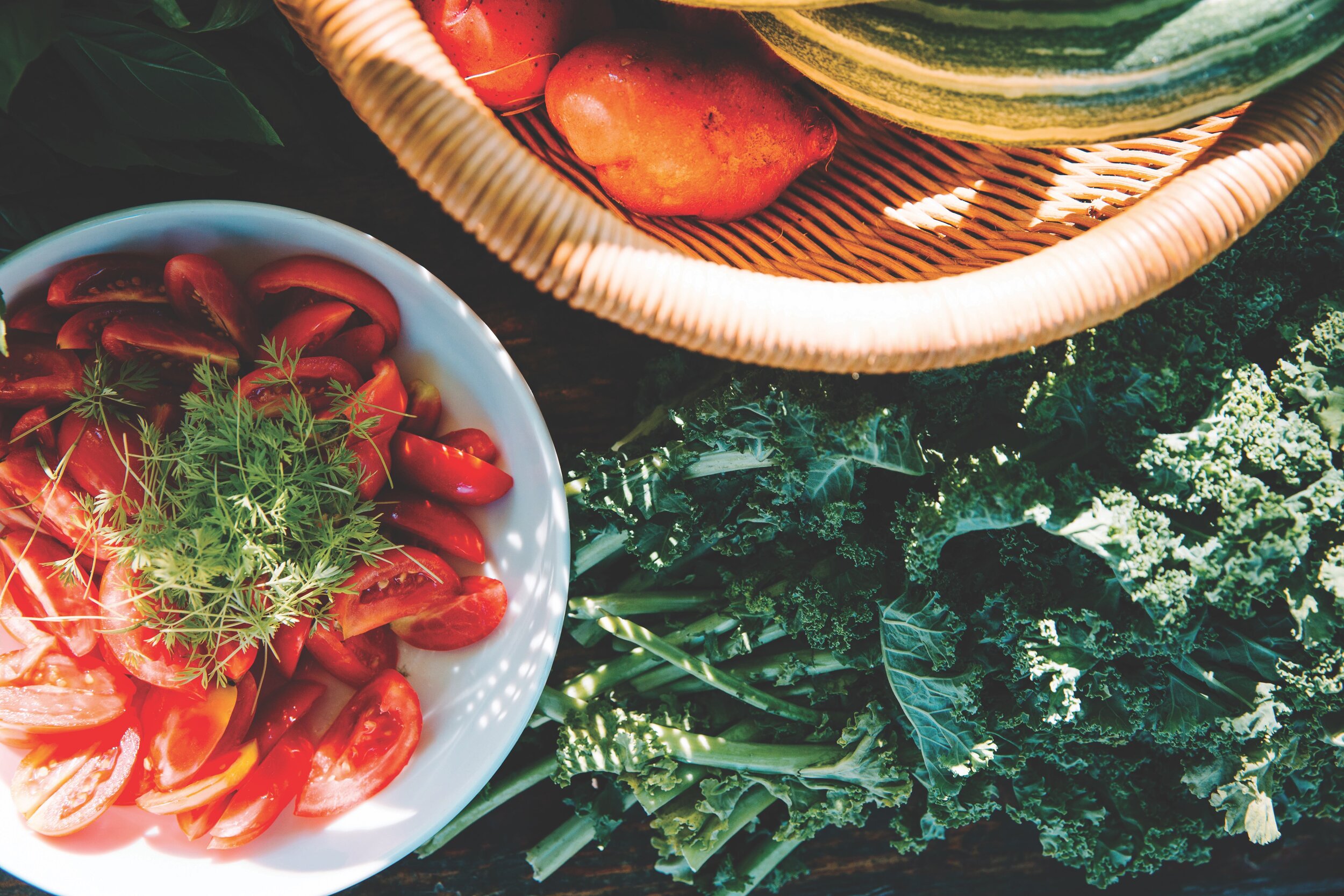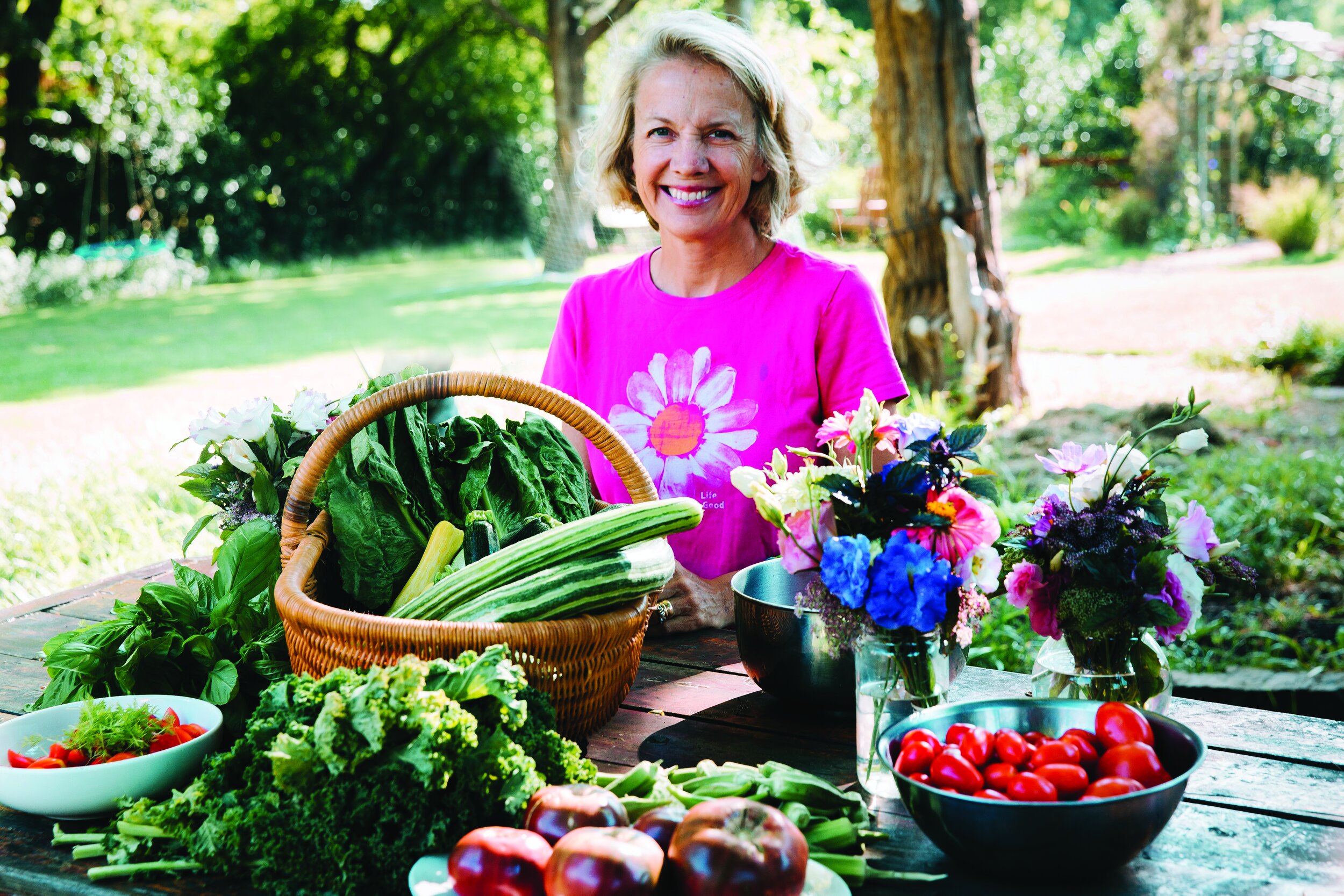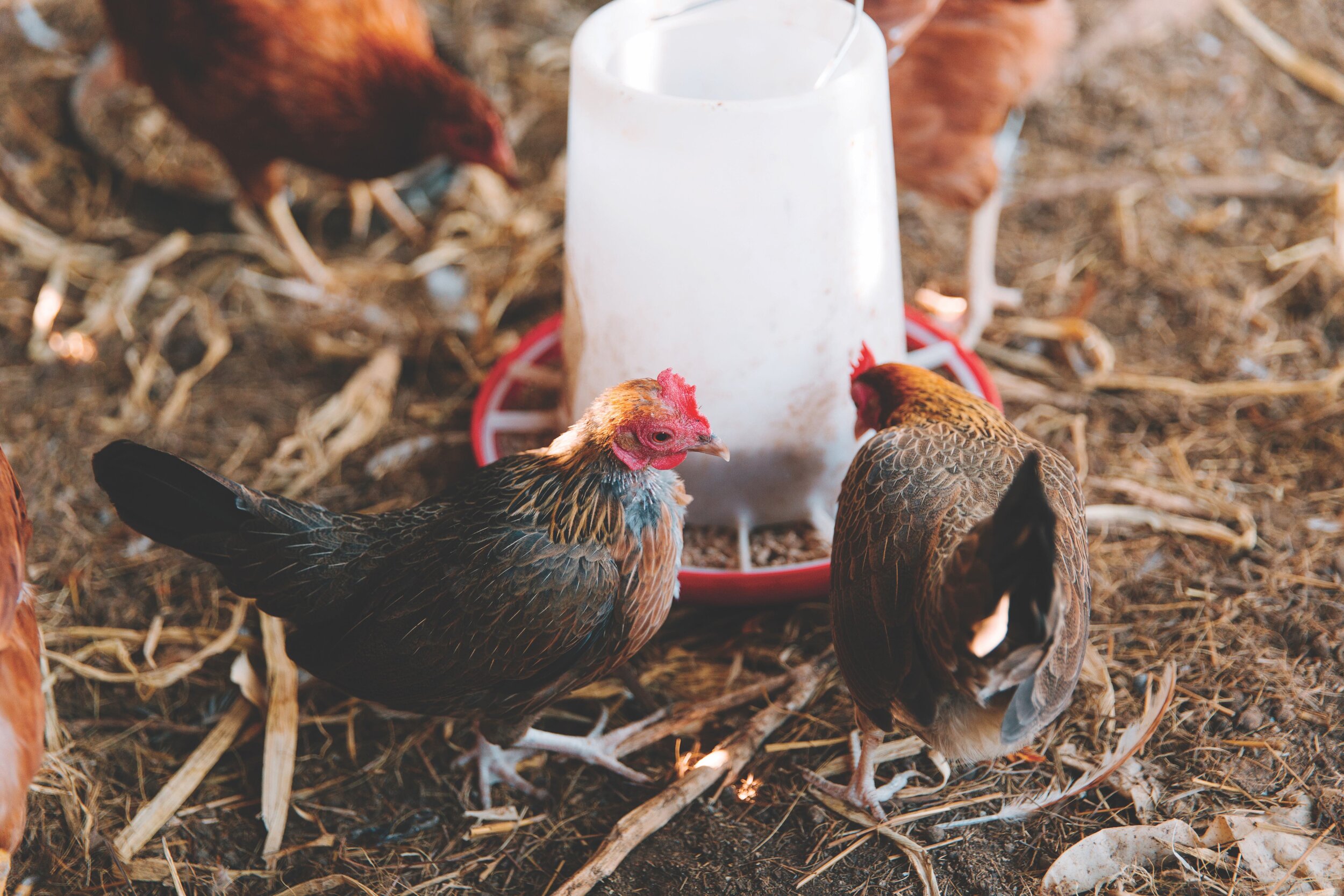Cultivating a Healthy Relationship
Kamala Gamble, farm-to-table chef and owner of Kam’s Kookery, also owns Guilford Gardens, a local Community Supported Agriculture farm. Nestled in the edge of Nichols Hills on the quiet street of Guildford Lane is a bright yellow house, and behind the happy facade of a normal suburban home is a food lover’s oasis. An immediate sense of calm and relaxation comes over you as you walk past the beautiful flower garden that transitions to a lush green lawn and then opens up to two acres of the most wonderful, delicious produce, including a chicken coop for eggs.
It was incredible to see a field of beautiful tomatoes and to hear about the work and passion Kamala has for each of the over twenty varieties growing there. As we walked her grounds and talked about her farm, we had such a passionate conversation about what real food is, what it looks like, and why members of a CSA are truly changing their relationship with food and their health. She explained the process of just how grocery store produce reaches the consumer and is almost three weeks old and less nutritious by the time you buy it! For example, many types of tomatoes are harvested green, refrigerated, then “gassed” to ripen them once they get to their destination. Refrigeration causes a chemical reaction in the tomato that affects flavor, so the shipping process affects the flavor and texture as well as the nutritional value. Kamala truly embodies the best farm-to-table chef, wanting each person to know where the food was grown, how it was tended, and who produced it with such pride and care.
When you buy from your farmer using a CSA, you are getting the same day’s produce, ripened in the sun, ready for you to eat. Your produce in your bag for the week will have a higher nutritional content than anything at the store; local produce is nutritionally superior because local farmers use compost, crop cover, and crop rotation to ensure the soil is going to provide the best nourishment for their crop.
Supporting your local CSA and shopping at local farmer’s markets are vital to the success of local farmers. By purchasing from your local farmer in a CSA agreement, you are engaging in direct communication with your farmer and ensuring a guaranteed market for their produce. This allows them to invest their time in making sure their crops are among the best. It supports biodiversity in their farms on a small level, and on a larger level, supports diversity in agriculture and encourages seasonal eating.
I asked Dr. Laura Miles, MD, Edmond physician and nutritional specialist, to weigh in on the advantages of organic and locally grown foods. Her answer, “Our food has changed dramatically in the last several decades. So many of our foods are now genetically modified (GMO), which usually also means there are more pesticides used on those foods. The nutrient value has also suffered with poor farming practices as well as the GMO movement. Organic food typically has a higher nutrient value and is not GMO. Local farmers take great pride in the quality of their soil, which directly impacts the nutrient value of the food they produce. It is very expensive to be graded as an organic farmer, so just because they don’t say organic doesn’t mean they aren’t using organic farming principles. Get to know your local producers and understand their farming practices, as prices are often cheaper than produce in the grocery store and are healthier for you!”
When you have a relationship with your farmer, and you’ve walked on the soil that nourishes your food, you have made a connection with your food, and eating is the single most personal thing you will do. At Guilford Gardens, we sampled the divine sun ripened tomatoes, we talked about personal responsibility for our health and how eating vegetables can nourish our body. It may be just a box of vegetables, but with it comes a relationship with a farmer who will show you where your food comes from, allow your children to pick their dinner, educate you on seasonal eating, facilitate relationships with other local farmers, and help you develop a lasting relationship with your health through your food.
photos: Ryan Magnani





